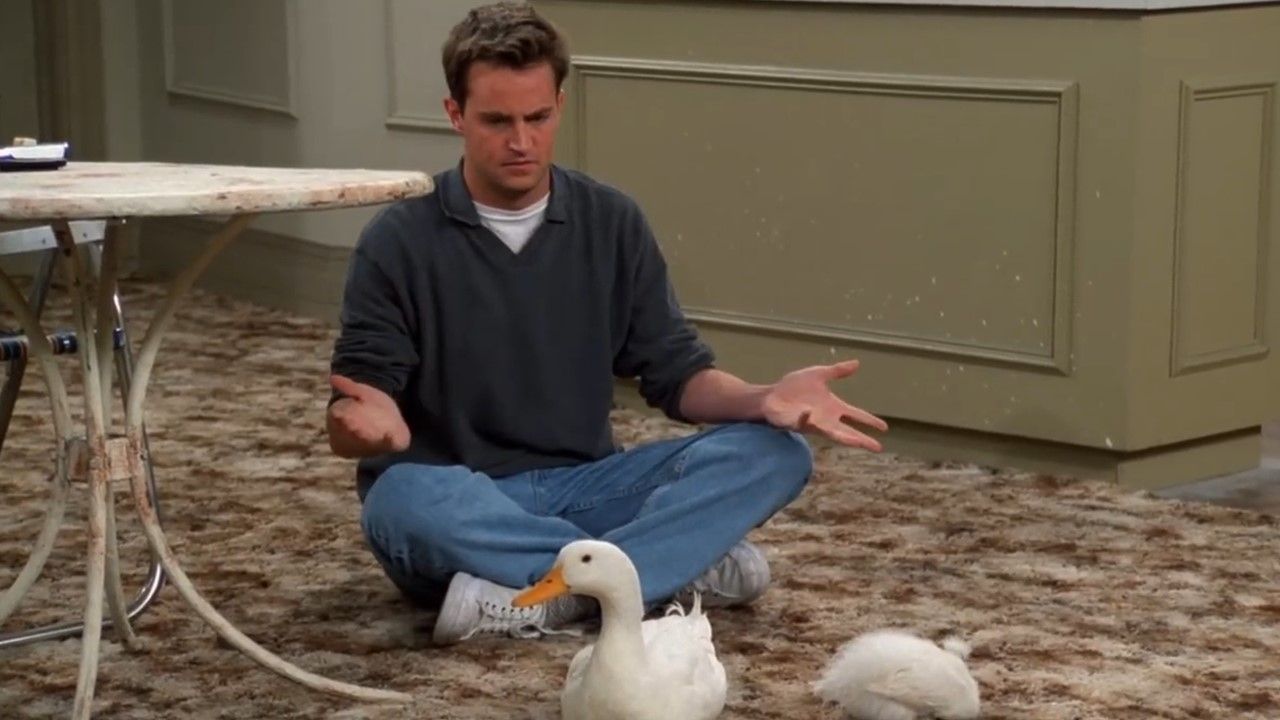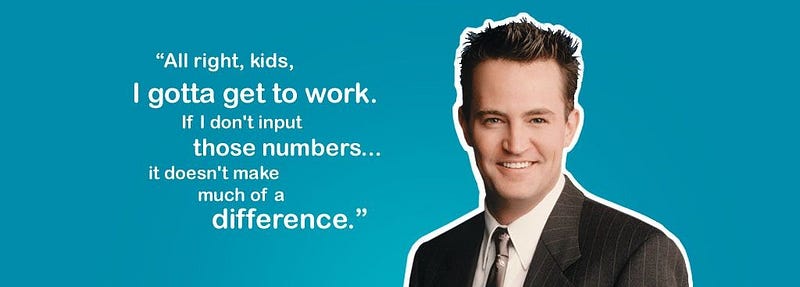
The One Where Friends’ Least Popular Character Ended Up with the Sexiest Job of the 21st Century
Although I did not watch the American sitcom Friends when it originally aired, I have since worked my way through its ten seasons over the course of two years. What is interesting is that while in some ways the show has not aged well — casual sexism, homophobia, and body shaming come to mind — the writers inadvertently gave their quirkiest, dorkiest character what was to become “the sexiest job of the 21st century” a decade later. After all, Chandler works in “statistical analysis and data reconfiguration,” or as we now call it: data science. Aside from wanting to give a shout out to clearly the best Friends character, there are a number of lessons we can learn from Chandler.
For starters, Chandler has a painful lack of self confidence. While we do not learn a great deal about his day to day work environment, you would expect a much higher degree of assertiveness from someone in such a specialist role, particularly considering that (apparently) he is good at what he does — being promoted several times throughout the show. Perhaps he suffers from Impostor Syndrome? In any case, a good manager would have spotted this and invested in addressing it. Many companies such as Google offer training to help employees with Impostor Syndrome as a standard practice.

Secondly, it is interesting to note how quickly perception of these types of roles have changed. We are facing a significant data science talent shortage. What is ironic is that this show is still being aired and Chandler’s role is mocked by the very people who should be scrambling to land his type of job. Statistics might make for a lukewarm sitcom punchline, but it is also an engine of economic growth that has added countless billions to the global economy. Companies are making significant investments in recruiting this type of talent — perhaps they should considering pre-roll ads against Friends!
Thirdly, branding technical roles matters — a recurring trope is that none of Chandler’s friends understand what it is that he does for a living. Currently, there is confusion about different types of roles, such as data analyst, data scientist, quantitative analyst, decision scientist, and business analyst. Given many companies use titles in an interchangeable fashion across different functions, it can be a pointless exercise painstakingly defining distinct roles and responsibilities. It is far more important to understand what value a role is adding within the organisation. This will help attract the right talent.

Finally, talent retention is not just about titles and compensation. Although on the show Chandler gets promoted to VP, eventually he quits because of the commute between New York and Tulsa, instead joining an agency as a junior copywriter. While naive to think that you can always align personal ambitions with those of the organisation, where was HR in this? Surely Chandler could have been offered a role as an Analytics Translator in their New York office?
For all Chandler’s wisecracks during 236 episodes, the funniest joke might be this: if only the show’s writers had sought counsel from the Chandler Bings’ of the world, they could have learned that trends were pointing to their future audiences being a lot more open minded — and consequently they could have written episodes that would have withstood the test of time a lot better.
— Ryan
Q* - Qstar.ai Newsletter
Join the newsletter to receive the latest updates in your inbox.



